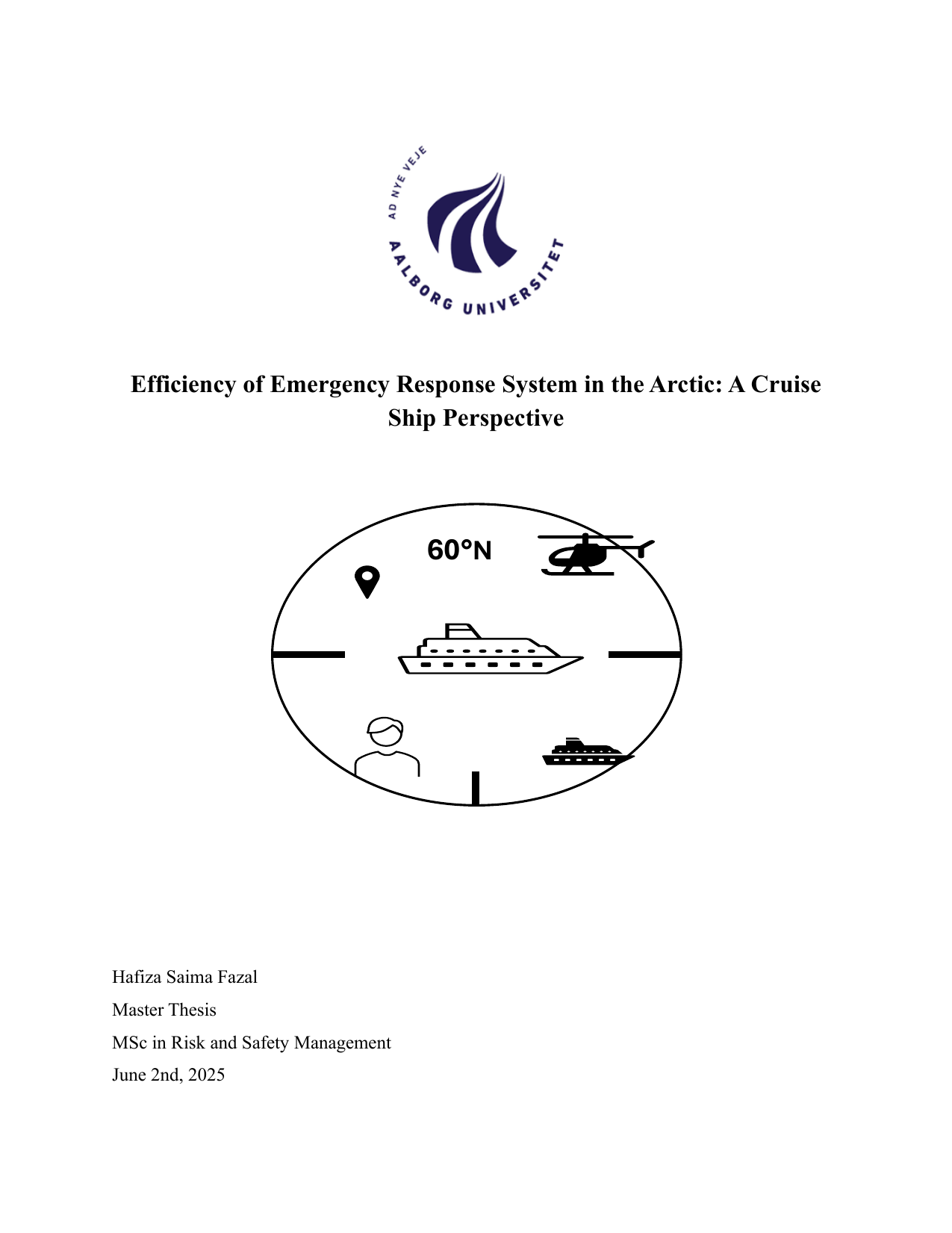
Efficiency of Emergency Response System in the Arctic: A Cruise Ship Perspective
Author
Term
4. term
Education
Publication year
2025
Submitted on
2025-05-31
Pages
75
Abstract
This study evaluates evacuation preparedness and search and rescue (SAR) feasibility for Arctic cruise ships, as climate change increases tourism in remote, high-risk waters. Using a mixed-methods approach, it integrates regulatory review and agent-based simulation via Pathfinder to model evacuation under both normal and obstructed egress scenarios. Results show that even moderate disruptions significantly increase evacuation time, travel distances, and crew response delays. The model’s validity was cross-checked against the Le Boréal incident. A combined assessment of SAR capacities in Norway, Iceland, and Greenland reveals that, in the absence of air rescue, a coordinated sea-based operation using Norwegian vessels could evacuate all passengers within 30.5 hours. In contrast, uncoordinated national efforts would require between 9.6 and 14.6 days, underscoring the critical importance of multinational cooperation in Arctic emergencies. To address systemic interdependencies, the study introduces a Functional Resonance Analysis Method (FRAM)-based framework for Arctic SAR planning. Key findings emphasize the need to revise survival time assumptions, enhance joint training exercises, and adopt inclusive planning protocols. Future research should integrate real-world incident data and consider passengers with mobility impairments to improve simulation realism.
Keywords
Documents
